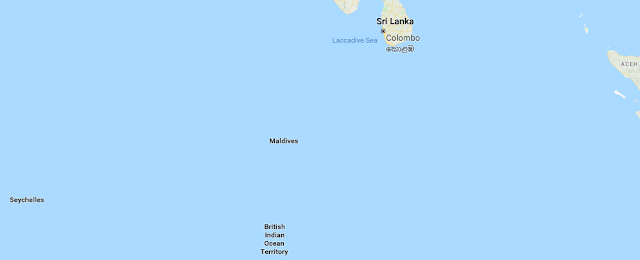Corruption is Everywhere - in Germany for sure
Bilfinger, one of Germany's best-known construction firms, pledged to clean up its global business practices as it pivoted to the oil sector. But when an investigator began digging into one of the company's deals in the Middle East, she suddenly fell ill - and things only got stranger from there.
By Rafael Buschmann, Jürgen Dahlkamp, Gunther Latsch and Jörg Schmitt; Der Speigel
Bilfinger has long been plagued by accusations of corruption.
In January 2017, Marie-Alexandra von Sachsen-Meiningen flew to the Persian Gulf. As "head of investigations" for the industrial construction company Bilfinger SE, she had deep insight into the firm, and was driven by a potentially dangerous curiosity to learn even more. Particularly about the muck left over from dirty deals in all corners of the world. Her job was to clear up cases of suspected corruption, to protect Bilfinger. What she didn't know was that her trip to the Gulf would be her last business trip on behalf of the company. And potentially the last one of her career.
Bilfinger was struggling for survival, and a man named Tom Blades had been charged with leading the company into a more promising future in the oil and natural gas industry. Blades, who was British, had significant experience in the oil industry and, after churning through four CEOs in just two years, including the former governor of the German state of Hesse, Roland Koch, he was considered the company's last hope.
His vision involved transforming Bilfinger from a construction company of 70,000 employees - a company that built the Olympic Stadium in Munich along with myriad bridges, tunnels and dams the world over - into a technical services provider for industry. He envisioned the new Bilfinger as a company focused on keeping factories running, and monitoring and repairing them as needed. One area of operations was the oil fields in the Middle East, a region where bribery is the rule rather than the exception.
Blades badly needed a quick win in the region, and a huge contract was in the offing in Oman.
In January of 2017, Marie-Alix von Meiningen was also headed for Oman. The head of the Bilfinger subsidiary in the country, a man who had landed one large deal after the other in the country, had disappeared without a trace and hadn't been seen for months. His disappearance had raised some uncomfortable questions: Had he been involved in bribery? Had all of Bilfinger's deals in Oman been bought?
Fired
But Meiningen never made it to Oman. She landed in Abu Dhabi, the first stop on her itinerary, and met up with a colleague who provided tea for the meeting. A short time later, she began feeling unwell and headed back to her hotel, where she spent the next three days suffering from hallucinations and high fever. She vomited blood, had trouble breathing and fainted repeatedly, as she would later tell friends.
She somehow made it back to Europe but was never able to resume her Oman investigation. On March 9, 2017, she was summarily fired, allegedly because she had hired private investigators in Oman and elsewhere without strictly following company regulations. The company had hired a lawyer specifically to find something, anything, that could be held against her.
Just six days after she was unceremoniously chucked out of the company, Blades finally announced the big deal he had been working on: an agreement with Petroleum Development Oman LLC extending Bilfinger's maintenance deal for an oil field in the country's north by three years. The contract was worth 200 million euros ($230 million). "The order confirms our new strategy: The Middle East is a growth market with potential for us," Blades said in a company press release. He must also have welcomed what the influential German daily Süddeutsche Zeitung wrote: "The contract signifies the dawning of a new era. Many observers had doubted that Blades would be able to change course."
There is much more to this story. It can be found here.








































